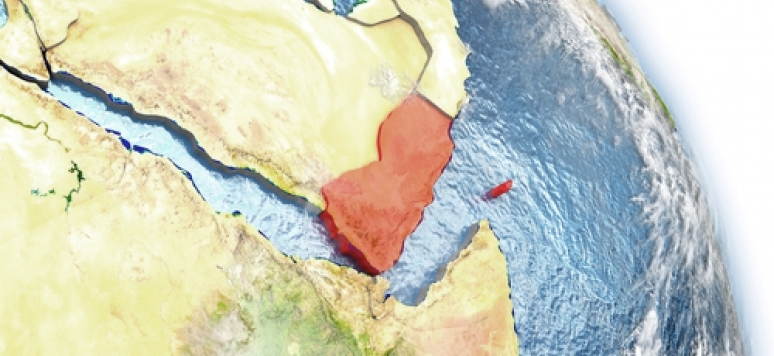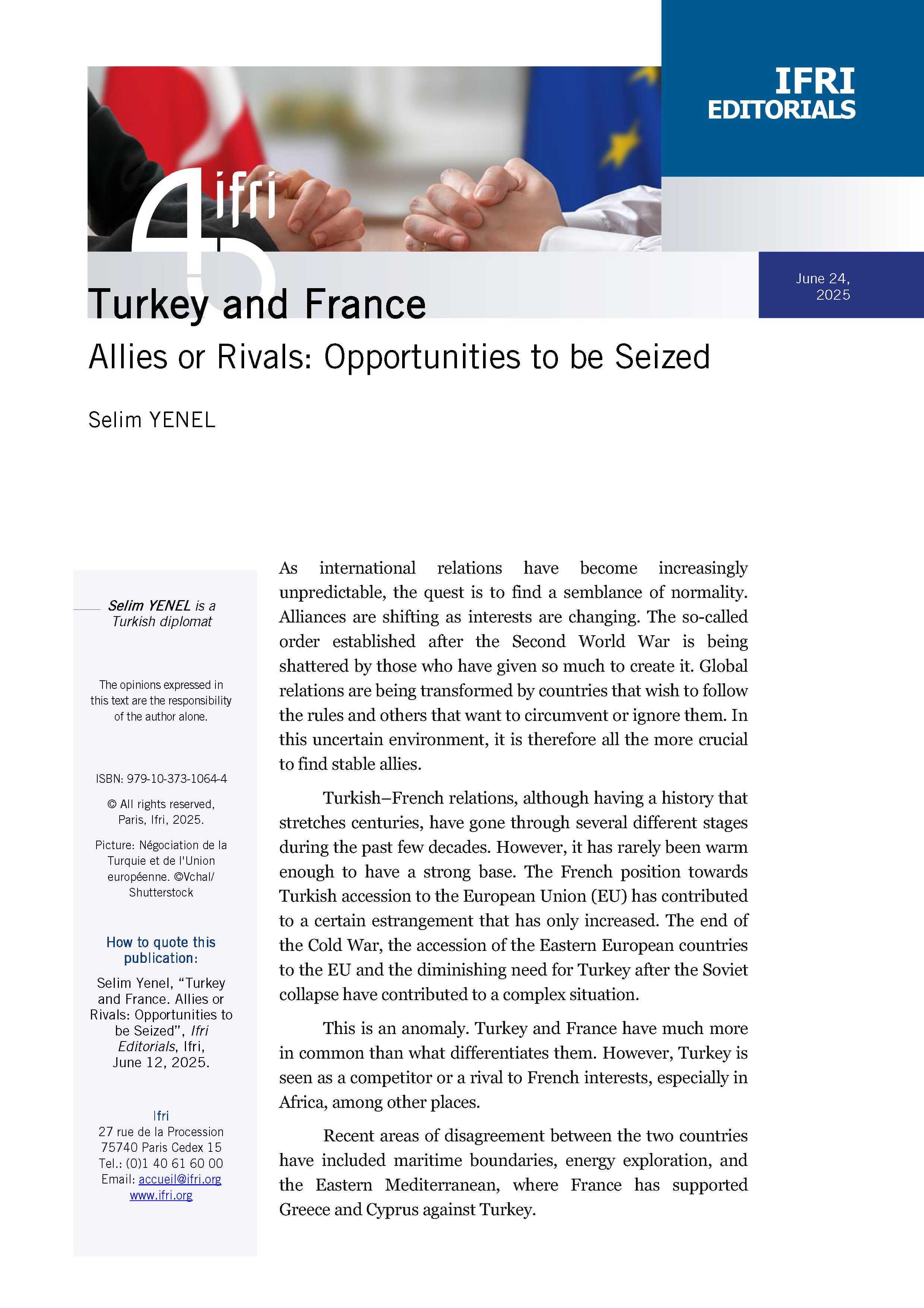Nomadic Diplomacy: The Case of Yemen

Along with Syria and Libya, Yemen is the third Arab country experiencing civil/international war, with the same consequences for diplomatic activity: because of the closure of embassies in situ and the security situation, states have had to develop a “nomadic” policy of contacts in third countries with their counterparts, according to their places of exile, which the following article designates in terms of Yemen as a test in “map-making.”

Diplomatic arrangements
Out of the countries maintaining diplomatic relations with Yemen, only about 20 have dedicated embassies which are currently divided into three categories.
 Sixteen countries followed the legitimate government in its exile to Aden in December 2014, and then to Jeddah and Riyadh in February 2015. These are the five permanent members of the Security Council (P5), the six members of the Co-operation Council for the Arab States of the Gulf, the Europeans (besides France and the United Kingdom: Germany, the Netherlands and the European Union), as well as Japan, Egypt and Turkey. Most of these countries retained some of their local staff at Sana’a, mainly for maintenance and security duties.
Sixteen countries followed the legitimate government in its exile to Aden in December 2014, and then to Jeddah and Riyadh in February 2015. These are the five permanent members of the Security Council (P5), the six members of the Co-operation Council for the Arab States of the Gulf, the Europeans (besides France and the United Kingdom: Germany, the Netherlands and the European Union), as well as Japan, Egypt and Turkey. Most of these countries retained some of their local staff at Sana’a, mainly for maintenance and security duties.
 Four embassies are still active in the Yemeni capital: Iran, Syria, Lebanon and Palestine, at the level of chargé d'affaires.
Four embassies are still active in the Yemeni capital: Iran, Syria, Lebanon and Palestine, at the level of chargé d'affaires.
 Russia is simultaneously in both categories, with an active chargé d’affaires in Sana’a, and since last autumn, an ambassador in Riyadh accredited to President Abd-Rabbu Mansour Hadi. Both embassies have comparable numbers and carry out parallel diplomatic work, the first with the de facto “authorities” in Sana’a, and the second with the legitimate government in Riyadh, with a presumably unique duplication in the international community.
Russia is simultaneously in both categories, with an active chargé d’affaires in Sana’a, and since last autumn, an ambassador in Riyadh accredited to President Abd-Rabbu Mansour Hadi. Both embassies have comparable numbers and carry out parallel diplomatic work, the first with the de facto “authorities” in Sana’a, and the second with the legitimate government in Riyadh, with a presumably unique duplication in the international community.
Because of the war in the country, the 17 “exiled” ambassadors (including the Russian one) are both:
 Ambassadors “to” Yemen: they have all presented their credentials to the legitimate president, either in Sana’a before the capital was taken by the Houthi/General People's Congress (GPC) alliance in September 2014, or in Riyadh after the “migration” of the legitimate authorities and the embassies.
Ambassadors “to” Yemen: they have all presented their credentials to the legitimate president, either in Sana’a before the capital was taken by the Houthi/General People's Congress (GPC) alliance in September 2014, or in Riyadh after the “migration” of the legitimate authorities and the embassies.
 Ambassadors “for” Yemen: having no bilateral relationship to manage, or only marginally because of the dormant trade, co-operation projects and consular affairs, with their main role being, mainly through their travels in the region to meet various contacts, to contribute to the peace process and to actively participate in talks directly or through ad hoc groups: G10 for the Geneva and Bienne negotiations in 2015-2016 and G18 (which has since expanded to the G19) for those in Kuwait in 2016.
Ambassadors “for” Yemen: having no bilateral relationship to manage, or only marginally because of the dormant trade, co-operation projects and consular affairs, with their main role being, mainly through their travels in the region to meet various contacts, to contribute to the peace process and to actively participate in talks directly or through ad hoc groups: G10 for the Geneva and Bienne negotiations in 2015-2016 and G18 (which has since expanded to the G19) for those in Kuwait in 2016.
Within this diplomatic corps, embassies of the P5 countries, and those of the European countries not in the P5 (EU, Germany, the Netherlands and Italy), as well as Japan, have been conducting their affairs with a rationale of “talking to everyone” which imposes “nomadic diplomacy” due to the dispersion of contacts in the region.
Diplomatic affairs: map-making
With the exception of the EU ambassador, who went to deliver a “humanitarian message” in Sana’a in early August 2017, none of the ambassadors “in exile” have returned to Yemen since the start of the conflict in March 2015. The reasons for this desertion vary depending on whether it is Sana’a or Aden:
 Sana’a: the main obstacle is not so much security (the city is “held'') or logistics (there are UN flights), as political. Any diplomatic visit would indeed raise the issue of recognising, at least implicitly, the de facto authorities, which the Arab coalition is seeking on the contrary to isolate in the name of a strict interpretation of Resolution 2216 adopted under Chapter VII, which generally considers the Houthi/GPC forces as “rebels” ordered to return to the status quo ante. They carefully check the passenger lists of flights which they authorise on a case by case basis. And although they let the British MP, Andrew Mitchell, visit in January and recently the EU ambassador, they blocked a UN flight with three BBC journalists on board in July.
Sana’a: the main obstacle is not so much security (the city is “held'') or logistics (there are UN flights), as political. Any diplomatic visit would indeed raise the issue of recognising, at least implicitly, the de facto authorities, which the Arab coalition is seeking on the contrary to isolate in the name of a strict interpretation of Resolution 2216 adopted under Chapter VII, which generally considers the Houthi/GPC forces as “rebels” ordered to return to the status quo ante. They carefully check the passenger lists of flights which they authorise on a case by case basis. And although they let the British MP, Andrew Mitchell, visit in January and recently the EU ambassador, they blocked a UN flight with three BBC journalists on board in July.
 Aden: the legitimate authorities, who are seeking to lend credibility to the city’s status as an alternative capital – and not only “temporary” – would happily welcome visits from diplomats. However, such trips have so far come up against two major restrictions: security, due to the city’s unstable situation, regularly marked by targeted assassinations and attacks; and political with the inevitable issue of contact with the separatist movement which thrives on discrediting the legitimate authorities, and which is also seeking international credibility.
Aden: the legitimate authorities, who are seeking to lend credibility to the city’s status as an alternative capital – and not only “temporary” – would happily welcome visits from diplomats. However, such trips have so far come up against two major restrictions: security, due to the city’s unstable situation, regularly marked by targeted assassinations and attacks; and political with the inevitable issue of contact with the separatist movement which thrives on discrediting the legitimate authorities, and which is also seeking international credibility.
Among the provincial capitals, only Mukallah (Hadhramaut), seems to be able to currently provide the satisfactory security conditions, but with access constraints which are difficult to overcome due to the closure of the airport to civilian flights. Above all, such a move, with no clear justification, might simply appear to be supporting local autonomist ambitions.
Due to these restrictions, contacts are therefore made outside of Yemen, according to a practice of nomadic diplomacy, which outlines a kind of map-making of the issue.
Saudi Arabia: the political centre
Riyadh is the headquarters – or more accurately the retreat – of the legitimate government. The President Abd-Rabbu Mansour Hadi has a former Guest Palace there and the government is installed in an adjacent hotel building. Despite attempts to return to Aden last autumn, the president lives there almost permanently, as does his vice-president, Ali Mohsen, who only makes a number of brief appearances in his stronghold of Ma’rib. The prime minister and several ministers (Foreign Affairs, Oil, etc.) stay there regularly.
The Saudi capital also hosts all the actors involved in the Yemeni issue: the Co-operation Council for the Arab States of the Gulf (CCASG) has its headquarters there and the coalition its general staff there. The Special Envoy, Ismail Ould Cheikh Ahmed, carries out his debriefings in front of the G19 in Riyadh, which holds its meetings there.
Jeddah is the quintessential “Yemeni” city in Saudi Arabia.
Several hundred thousand workers live there legally or illegally. Expelled in 1991 in retaliation for Sana’a's conciliatory position towards Saddam Hussein's Iraq, they have since returned in droves, despite the visa requirement now imposed on them.
Many “political refugees” have been welcomed there, particularly among the “losers” of the major crises in the country since the 1960s (the southern leaders of the failed separation in 1994, various northern or southern tribal chiefs, or more anecdotally, the last Sultan of Hadhramaut).
Yemeni leading figures and long-standing or circumstantial allies make regular visits there (about a hundred “loyalist” parliamentarians have been there for several months) or live there, like two sons of the powerful Sheikh Ahmar, the former Speaker of the Parliament and founder of the Islah party.
Finally, Jeddah is the home city of the major Saudi merchant families, originally from Hadhramaut who have retained an attachment for the province which goes beyond nostalgia, particularly through the Bugshan Foundation, which is developing a major scholarship programme abroad for Yemeni youth from Hadhramaut.
The P5 countries, the CCAGS ones, as well as Japan and Turkey have therefore “naturally” based their ambassadors in Saudi Arabia, outside of or within their bilateral embassy. All are based in Riyadh, except for the US ambassador, who has remained in Jeddah for internal administrative organisational reasons.
Amman: the "humanitarian hub”
Jordan has been rather more restrictive in welcoming Yemenis since the beginning of the conflict, including in the hospital system, which they have traditionally been important customers of. However, it tolerates within this community of several tens of thousands of people, among whom there are an indeterminate number of refugees, the discreet activities of various civil society organisations and political groupings, which constitute a pool for “Track II” implemented by the German Bergdoff Foundation.
Above all, Amman has become the rear base for practically every UN team in Yemen. The United Nations Development Programme, the Office for the Co-ordination of Humanitarian Affairs, but also the Special Envoy, are now based there, with the latter working with a team of several dozen staff members, within a set-up which could develop into an integrated “mission” like in Iraq or Afghanistan.
Germany has based its ambassador there. The EU and the Netherlands, with the same desire to be closer to the humanitarian actors, should open their embassies there soon. The Americans and the British have part of their staff there based in their bilateral embassies.
Cairo: the “political hub”
Unlike Jordan, Egypt is welcoming for Yemenis, with easy visa access, a low cost of living, greater freedom of movement and political action, and scheduled flights for Aden, even more so than Amman. A large Yemeni community, estimated at 200 000 people, lives there. Several ministers have settled their families there and stay there regularly. A Yemeni social life has developed there, as shown by the organisation of politically very “ecumenical” major weddings.
Several groupings, half-think tanks/half-parties, led by former GPC cadres or ministers are active in Cairo: Mohammed Ali Abulohoum's Peace and Construction (Al Adala wal Benaa), which is incorporated into a “group of 7” around several former ministers of the former president, Ali Abdullah Saleh; a “group of 4” led by well-known figures and former GPC leaders (a parliamentary member and former Minister). Several generals and many officers have remained neutral, so they may one day serve as a “pool” for the military component of a post-conflict plan. All are in contact with “home” where many still have their families, and some of them can link up with the Houthis, who are not represented locally.
Muscat: the place of contacts with Yemenis from home
The Omanis have often been involved in sensitive mediation missions in Yemen, mainly in hostage cases. Muscat, which is not a member of the Arab coalition, is the only CCASG capital where direct contacts can be made with Houthi officials when they can go there, and the country remains on hand for possible mediations between all the parties, including the former president, Saleh, part of whose family and relatives have settled in the country.
Three other countries are also on the map of Yemeni contacts, but in a more sensitive or specific way:
 The United Arab Emirates (UAE): is very restrictive in welcoming Yemenis, but Abu Dhabi is nonetheless conducting a monitored, but discreet policy of influence and contacts among the southern, “legitimist” and separatist figures. In this way, the Emiratis are trying to maintain possible channels of communication with the former president, Ali Abdullah Saleh, whose eldest son Ahmed, a former head of the Republican Guard, stayed put after the end of his posting as ambassador in 2014.
The United Arab Emirates (UAE): is very restrictive in welcoming Yemenis, but Abu Dhabi is nonetheless conducting a monitored, but discreet policy of influence and contacts among the southern, “legitimist” and separatist figures. In this way, the Emiratis are trying to maintain possible channels of communication with the former president, Ali Abdullah Saleh, whose eldest son Ahmed, a former head of the Republican Guard, stayed put after the end of his posting as ambassador in 2014.
 Lebanon: the Yemeni community in Beirut reflects the local sociology: rich exiles, businessmen close to the former government, and Houthis established in the southern suburbs (where their TV channel Al-Massirah broadcasts from). In addition, there is a student community (American University of Beirut, Lebanese University), which is limited in number, but very “online” and active, particularly through the Sana’a Center for Strategic Studies or the activities of young feminists.
Lebanon: the Yemeni community in Beirut reflects the local sociology: rich exiles, businessmen close to the former government, and Houthis established in the southern suburbs (where their TV channel Al-Massirah broadcasts from). In addition, there is a student community (American University of Beirut, Lebanese University), which is limited in number, but very “online” and active, particularly through the Sana’a Center for Strategic Studies or the activities of young feminists.
 Djibouti: probably the closest country to Yemen in geographical and human terms, with long-standing relations, including trade and banking, with the former President Saleh’s regime. This situation dictates a cautious policy of “support without participation” for the Arab coalition, of political neutrality (none of the groupings listed above are active there), and of receiving refugees (admittedly far less than anticipated at the beginning of the conflict).
Djibouti: probably the closest country to Yemen in geographical and human terms, with long-standing relations, including trade and banking, with the former President Saleh’s regime. This situation dictates a cautious policy of “support without participation” for the Arab coalition, of political neutrality (none of the groupings listed above are active there), and of receiving refugees (admittedly far less than anticipated at the beginning of the conflict).
Although not a political place, Djibouti’s geographical proximity to Yemen makes it a is the main logistical base for major humanitarian operators for access to Yemen because of its geographical proximity, particularly the International Committee of the Red Cross (ICRC) and Doctors Without Borders (MSF). Furthermore, the country is home to the headquarters of the organisation monitoring vessels going to Hodeidah (UNVIM).
Finally, mention could be made of Istanbul, which is further away, but where the head of the al-Ahmar tribe lives, between two stints in Doha, and for the record Geneva and Kuwait, strictly speaking without any Yemeni significance, but which hosted peace negotiations in 2015-2016, and are available to do so again.
***
Naturally, all these centres of the Yemeni political diaspora are changing. The main actors, as well as the accredited diplomats in their countries, travel in the region according to conferences, meetings or interviews, depending on the visas they can obtain... Most maintain family, tribal and political links with home, where some of them make trips or stays.
The whole issue is linking this political activity in third countries, as active, positive and multi-faceted as it is, with developments at home (development of front lines, separatist dynamics in the south, institutionalisation of the Houthi hold in the north, etc.) which the diaspora has no control over. The risk is, as the conflict lasts, of losing contact with reality in the form of “hotel lobby diplomacy” which only the resumption of negotiations between all the parties, a condition of a return to the country, could avert.
Download the full analysis
This page contains only a summary of our work. If you would like to have access to all the information from our research on the subject, you can download the full version in PDF format.
Nomadic Diplomacy: The Case of Yemen






